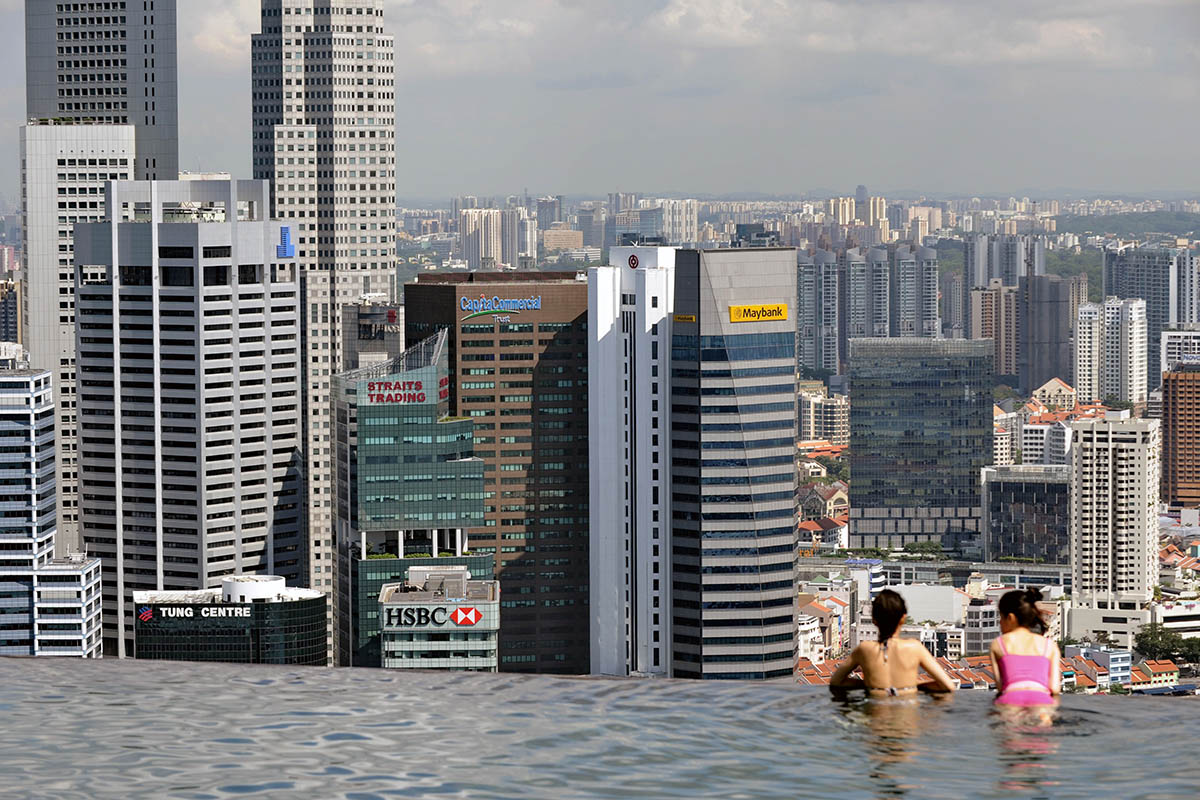Asia remains a growth favorite for businesses and investors even if tensions between the U.S. and China escalate into a full-blown trade war, according to Singapore’s Economic Development Board.
“Singapore is very fortunate, Asian countries in general are very fortunate because we are in the middle of a growth engine,” Beh Swan Gin, chairman of the EDB, said in an interview with Bloomberg Television’s Haslinda Amin on Tuesday.
“Asia is somewhat insulated from this -- not totally of course -- but it can provide upside that can mitigate some of the downside if indeed there is a major dispute between the U.S. and China,” he said.
TThe city state is taking stock and planning for the worst after the world’s two biggest economies exchanged blows last week, with U.S. President Donald Trump promising tariffs on $50 billion of Chinese imports on top of steel and aluminum duties. China responded with penalties on $3 billion of U.S. imports.
The two sides are now engaged in negotiations that Beh said could create a “much more level playing field across the world.” He said it’s still too early to say whether the dispute will result in a trade war and businesses that he’s spoken to, as part of the EDB’s role to attract more investment to Singapore, are adopting a “wait-and-see” approach.
Trade Dependence
For Singapore, a deterioration in those talks could imperil an already more tempered growth path for 2018 after strong global trade last year propelled the economy to its fastest pace of expansion since 2013.
The city state is dependent on trade, amounting to 212 percent of its gross domestic product as of 2016, according to World Bank data. That compares with a world average of 42 percent. China is Singapore’s top goods trading partner, with a 14.2 percent share, while the U.S. is the fourth-biggest at 8.3 percent.
Beh sees reasons around the region to remain upbeat: growing demand in China, Southeast Asia and in India. Japan, Australia and New Zealand remain solidly pro-trade, he said, helping to accelerate regional trade deals such as the Comprehensive and Progressive Agreement for Trans-Pacific Partnership that was signed March 8.
Beh said the rising trade frictions should be seen in the context of the U.S.’s different approach in dealing with disputes.
“We’re all talking about escalating tensions, indeed, but it’s part of the negotiations,” he said. “And there’s no question that the current approach by the White House is one where they’re prepared to raise the stakes in the negotiating stance, and it’s much more played up in the public than it used to be, but that’s a matter of style.”
US Taxes
While the U.S. and China do battle on the trade field, Singapore is seeing a gradual broadening out of manufacturing gains it enjoyed in 2017. And while certain areas of Singapore’s economy might see tougher competition overseas, that’s more a long-term story of globalization than a response to trade-war tension, Beh said.
He identified the pharmaceutical industry as one area where new investments might crop up on American shores rather than in Singapore, particularly given recent U.S. tax policy changes that enhance competitiveness.
“Many companies are now digesting the tax changes in the U.S. and re-looking at how they may or may not want to change their supply chains around the world,” Beh said.
But he doesn’t see that threatening Asia’s long-term attractiveness for companies, and Singapore’s role as a leading base of those activities.
“The vast majority are here today because of the growth in Asia, the opportunities in Asia,” Beh said. “That’s not going to go away, and you have to be in Asia to serve these opportunities.”
